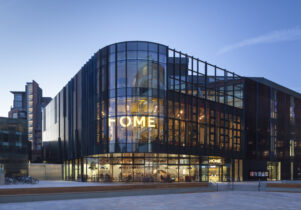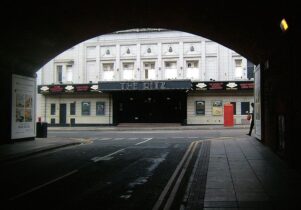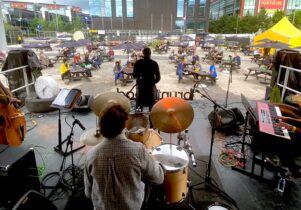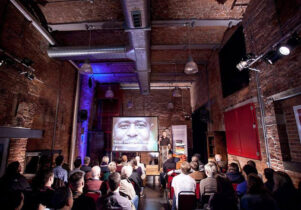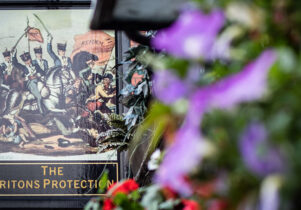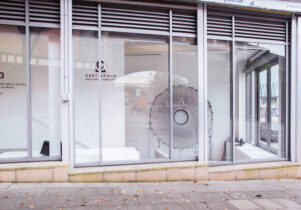Slapstick Film Season at HOME
Tom Grieve, Cinema Editor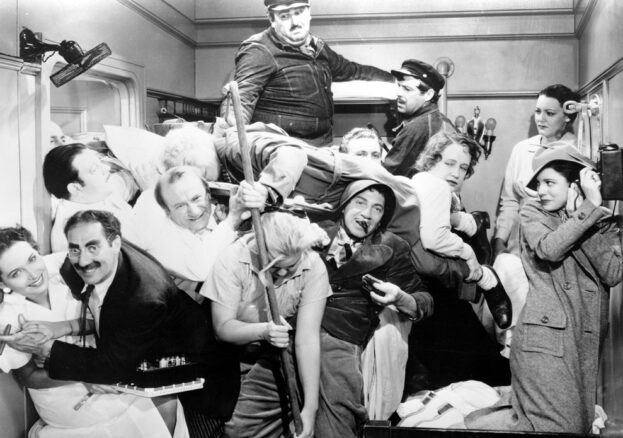
Film fans can look forward to pratfalls aplenty this December as HOME present a season of Slapstick. Organised to coincide with their presentation of the Edinburgh Spirit of the Fringe Award-winning show, Släpstick and as part of the nationwide BFI Comedy Genius event, this series of silly silent and early sound films features classics from the likes of Buster Keaton, Charlie Chaplin and the Marx Brothers. These are timeless, accessible and of course very funny films — it turns out that watching a bully get smacked with a mallet doesn’t get old — but audiences revisiting them today will realise that they are also artful and sophisticated.
There are two chances to catch Buster Keaton’s masterful Sherlock Jr. (1924) with a relaxed screening designed for people with autism spectrum conditions and their families on Saturday 24th November, and alongside his inventive short One Week (1920) with a live accompaniment by HarmonieBand on Sunday 9th December. The film is Keaton’s best as far as this writer is concerned, with a story that stars the filmmaker as a hapless projectionist and wannabe detective who falls asleep on the job and dreams his way into a crime-fighting role in the movies. There’s a playful reflexivity to the work, which is delivered with a warming acknowledgement of the power of the pictures. It also features some of Keaton’s most impressive physical feats as he bounces up and down a city on a furious pursuit.
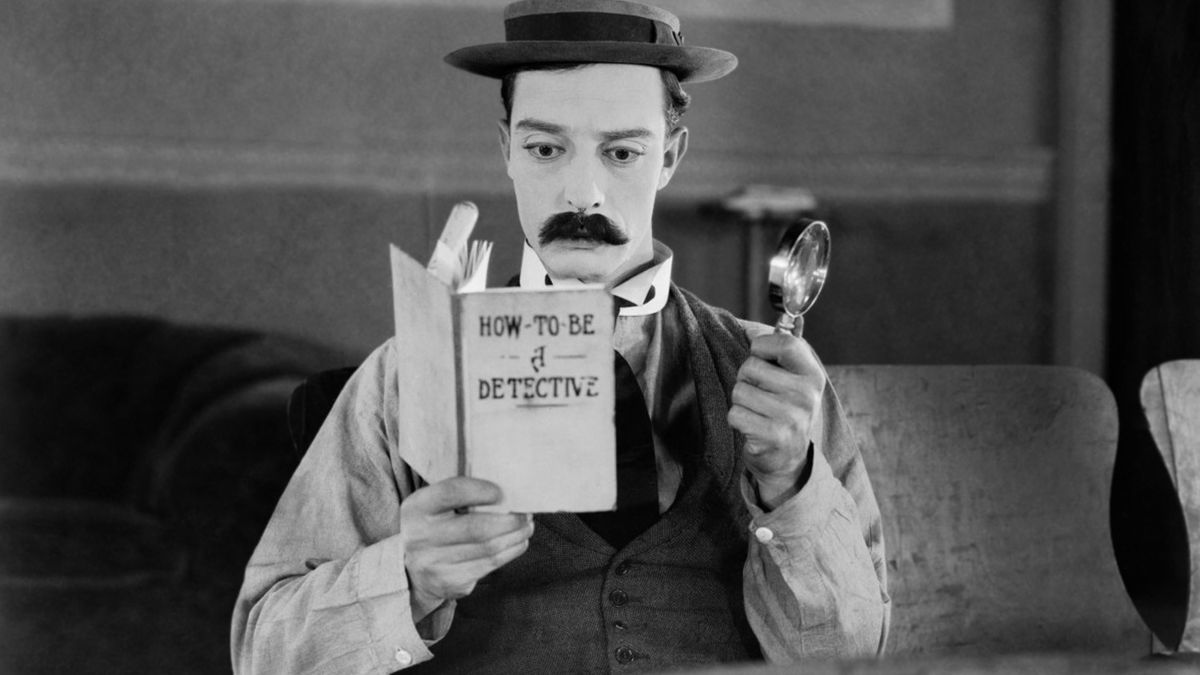
It goes without saying that these early films were produced without the aid of modern technological advances. There were in-camera tricks employed for sure, but these were supremely talented athletes completing dangerous stunts, with the very real possibility of serious injury hanging over them. Keaton famously broke his neck during the filming of Sherlock Jr. when a water tower unleashed a powerful flow onto his head, while the silent comedian Harold Lloyd lost a thumb and index finger in a mishap with a prop bomb. Working conditions are no laughing matter, but looking back at the films of the era, there’s a thrill that owes partly to that verisimilitude.
The season could not possibly take place without an appearance from Charlie Chaplin’s Tramp character, and the HOME team have scheduled a screening of Modern Times (1936) for Wednesday 12th December. A mostly silent film, delivered some time after the advent of sound, Modern Times features some of Chaplin’s most iconic imagery as he is literally chewed up and spat out by the cogs of modernisation. Eighty years on, the comic set pieces, including the factory mishaps and a stonking restaurant performance, have lost none of their magic, but this is also an angry political film about the small human gestures which sustain us and the unfeeling, impersonal industry which threatens us.
Chaplin felt that his Tramp wouldn’t translate to sound and whilst the filmmaker ultimately made the shift, the character did not. Indeed, Modern Times was released the year before Sam Wood’s Marx Brothers film, A Night at the Opera (1935) which screens on Friday 7th December, but they feel of different eras. Billed by HOME as a ‘musical swipe at self-importance, pomposity and insensitivity’, the Brothers’ classic follow-up to Duck Soup (1933) features Groucho, Harpo and Chico causing all kinds of havoc in and around the New York Opera Company.




